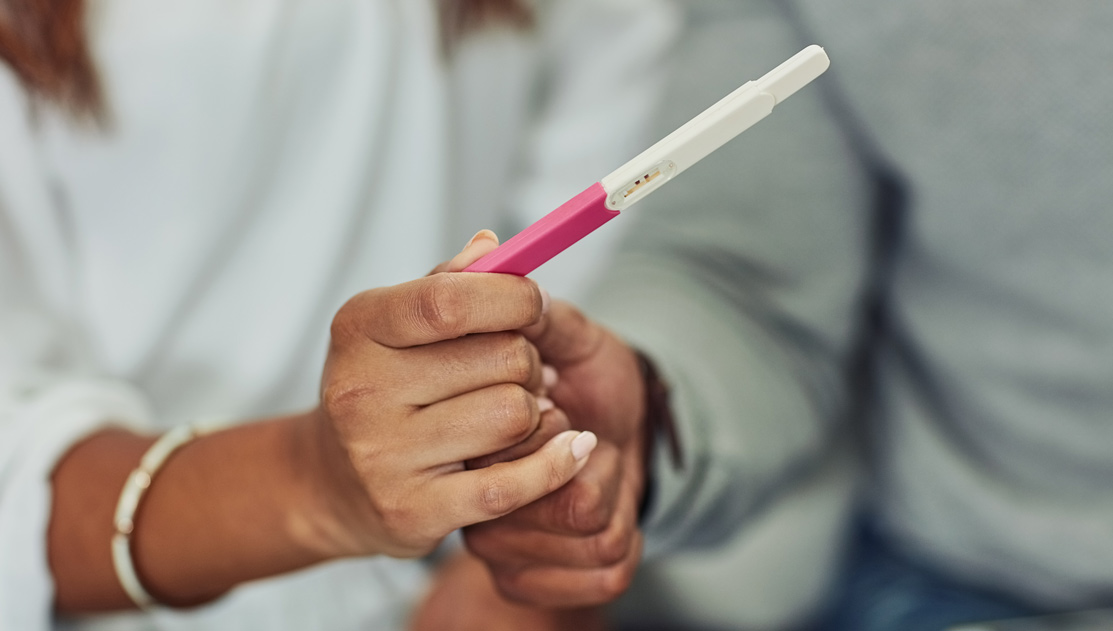Are you considering IVF over 40? If you’ve been struggling with fertility over 40 and are thinking about seeking treatment, you probably have a lot of questions.
Top among them will be: Is IVF worth it over 40 and what can I do to boost my chances? As one of the UK’s top fertility clinics, we frequently administer IVF for women over 40 and specialise in treating complex cases. Read on for crucial information about IVF over 40.
First things first: what does IVF involve?
IVF (in-vitro fertilisation) is an assisted conception technique whereby a woman’s ovaries are stimulated with hormone medicines to produce more eggs (than the usual one per menstrual cycle), which can then be removed under sedation. Then, the eggs are mixed with sperm in the laboratory to make embryos. The developing embryos are then monitored in a lab for a few days, before the best quality embryo(s) are selected to be placed back into the woman’s womb to grow and develop.
Here you can read more in-depth information on the IVF process.
Age and IVF
IVF patients are getting older. The average age of patients undergoing their first cycle of IVF has increased, to just above 35 years old in 2022.
Here is the conundrum: IVF over 40 can be trickier because fertility over 40 declines across the board – but for many IVF patients, age is exactly why they are seeking treatment in the first place. Age is the single biggest factor affecting female fertility. And no matter what anyone thinks, age-related fertility decline absolutely affects men too. A 30 year old couple having regular unprotected sex will tend to enjoy a 20% chance of conception each month, but by the time they are 40, that chance is down to 5%. No wonder so many more couples are seeking a helping hand.
Often IVF for women over 40 is sought because up until now, she had not felt in a position to have children. She had not met the right partner yet, or sufficiently progressed in her career or felt financially secure enough. Now she is finally ready, but the question then becomes: is IVF worth it over 40?
Is IVF worth it over 40?
Clinics such as ours enjoy IVF success rates higher than the national average – which we are particularly proud of given that our specialism is treating complex cases of recurrent IVF failure (patients whose treatment has been repeatedly unsuccessful at other clinics). But even in the top clinics, per cycle IVF success rates for over 40s will always be lower – it’s just a fact of life.
According to the Centres for Disease Control (CDC) in the United States of America women are advised to seek medical advice if:
- Under the age of 34: One year of trying to conceive without success
- Age 35-38: 6 months of trying without success
- 39 and above: 3 months of trying without success
Some expert opinion advises women above 40 to be checked even before starting trying to conceive to avoid wasting precious time in case there is a factor that might compromise their chances of conceiving.
IVF is the preferable treatment in patients above 40 years of age as it is far more successful, and time is of the essence as the ovarian reserve declines significantly with time. Research by Armstrong and Akande (2013) reveals that the Live Birth (LB) rate after one IVF cycle in that age group is 13-15% while the LB rate following Intrauterine Insemination (IUI) is 1%. Research by Marikanis & Nikolou (2011) shows 0% success rate in IUI natural cycle and 1.4% in ovarian stimulation cycle for women in this age group.
Dr Amin Gorgy, renowned Fertility Consultant at The Fertility and Gynaecology Academy says: “There is no doubt that per cycle IVF success rates are significantly lower for over 40 groups than for people in their 20s and early 30s. Any trustworthy fertility doctor will be straight with you about that. The question really is, what position are you in, both biologically and financially, and what investment in terms of time, energy and resources are you able to make if one cycle doesn’t do it?
“No one can answer these questions except you – after you have undergone exacting fertility testing to determine what your starting point for IVF over 40 is likely to be. For instance, do you have a normal ovarian reserve for your age? Have you suffered recurrent miscarriage? Does your partner have any sperm quality issues? IVF is not one size fits all; it must be tailored to each individual case. The answer to questions like these will determine the approach that a good fertility clinic would advise you to take.”
It is absolutely possible to achieve success with IVF over 40 and here at The Fertility and Gynaecology Academy, we’ve helped countless couples who’d all but given up hope. While there are never any guarantees, there are steps you can take, both at the clinical and lifestyle level, to try to boost your chances. Read on for more information.
IVF over 40: 5 things to consider
Getting it right faster
The principles for IVF over 40 are generally the same but there is time pressure to really try to get it right because, as we always say here at The Fertility and Gynaecology Academy, time is fertility. And time is always ticking. For that reason, it’s a good idea to consider:
1. Comprehensive fertility testing for both you and your partner
Fertility testing is not created equal. There are varying levels of depth you can go into. For instance, more in-depth fertility screening for women includes saline hysterography to examine the integrity of the reproductive organs, whereas men can have their sperm screened for DNA damage. Before you embark on any assisted conception techniques you should seek comprehensive, exacting fertility testing for both partners. That way there are no surprises, and no wasted time and resources.
2. Genetic screening of embryos may help
Since chromosomal abnormalities are more common after 40 (and are a major cause of miscarriage and embryo implantation failure), you may wish to choose a clinic that can offer you specialised techniques such as pre-implantation genetic screening of embryos. This is when – as part of the IVF process – your fertilised embryos are screened for any numerical chromosomal abnormalities before being placed back into the womb. Here at The Fertility and Gynaecology Academy, we are one of the few fertility clinics in the UK that can offer this in-house.
Please note: HFEA’s view on genetic testing. You can also find further information on the British Fertility Society website.
3. The male factor
When thinking about fertility over 40, it is very important not to neglect the male factor. Male fertility generally begins to decline in the early 40s, and advancing male age is linked to declining sperm quality and testicular function. Indeed, one third of all infertility cases are due to problems with the male alone (with another third being female alone, and the remaining third being problems with both partners or causes unknown). So, it is very important that both partners undergo thorough, exacting fertility screening so that the right treatments can be recommended. For example, if it is discovered that your partner has low sperm motility, rather than conventional IVF you will probably want to opt for Intracytoplasmic sperm Injection (ICSI), where the sperm is injected directly into the egg for fertilisation.
4. Any possible immune issues
Issues with the immune system may increase the risk of miscarriage and implantation failure – if your body’s immune system interferes with your essential pregnancy hormones or mistakes the baby’s tissue for a foreign invader and attacks it. Autoimmune issues are more likely to affect women over 40 than younger women, and yet they are plagued by failure of diagnosis. In fact, here at The Fertility and Gynaecology Academy, as specialists in helping women with immune issues to create families, many women come to us after IVF attempts have failed at other clinics, or after they’ve suffered recurrent miscarriage without even suspecting that immune issues were a problem. If you or your doctor thinks you might have an autoimmune issue, you may wish to consider immune testing before undergoing IVF over 40. That way, any potentially helpful immune treatments can be administered before you embark on the IVF process.
Please note: HFEA view on immune testing and treatments. You can also find further information on the British Fertility Society website.
5. Optimising your lifestyle for fertility over 40
In addition, there is plenty you can do at the level of lifestyle and nutrition to help get yourself ready for IVF over 40 – from eating a broadly Mediterranean diet to avoiding certain plastics as much as possible. For more tips you can see our recent article on improving fertility over 40.
- We can try to improve the number and the quality of retrieved eggs by prescribing DHEA tablets and Growth Hormone injections. The preparation should start well before the IVF cycle.
- Ovarian rejuvenation: This can increase the number of eggs in an IVF cycle and improve the egg quality by injecting Platelet Rich Plasma (PRP) preparation directly into the ovaries. Alternatively, we can use Mesenchymal Stem Cells (MSC) from the subcutaneous fat through liposuction or exosome prepared from the blood.
- IVF using donor eggs: this treatment could be helpful for women unable to produce follicles during ovarian stimulation. A donor’s eggs can be fertilised in the lab using sperm from your partner, with the fertilised embryo then implanted in the uterus.
Are you considering IVF over 40?
Ready to find what your starting point would be and want to know the best way forward? The Fertility and Gynaecology Academy utilises some of the finest assisted conception technology and most up-to-date methods. We specialise in treating complex cases and have helped countless couples over 40 finally achieve their dream of a baby.
For a consultation call 020 7224 1880 or book online.







